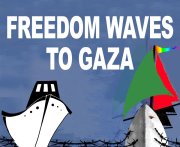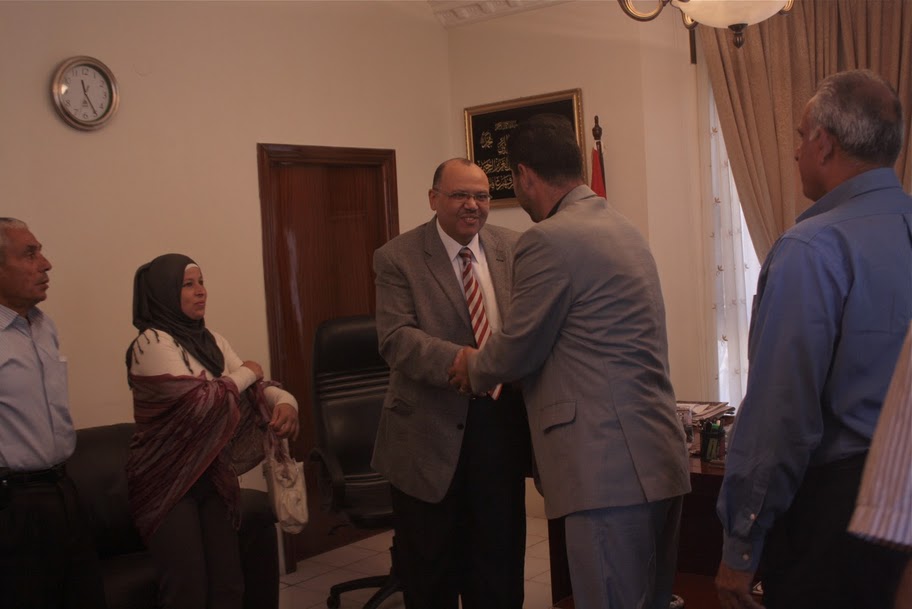Tag: Gaza
-
Palestinian youth join boats set to challenge Israel’s siege of Gaza
2 November 2011 | Freedom Waves FOR IMMEDIATE RELEASE Palestinian youth join boats set to challenge Israel’s siege of Gaza Irish and Canadian boats in international waters on their way to challenge illegal siege policy Palestinian activists call for end to international complicity in Israel’s crimes Support actions taking place throughout the West Bank and…
-
#FreedomWaves launches to bring Gaza humanitarian aid
by Ben Lorber 2 November 2011 | International Solidarity Movement, West Bank On Wednesday, November 2, two international ships left the Turkish harbor to carry humanitarian aid through the Israeli blockade of Gaza. The event, called ‘Freedom Waves for Gaza’, unites 27 activists from 9 countries, including America, Canada, Denmark, Belgium, Germany and Australia, alongside…
-
Egyptian Ambassador promises to deliver petition to open Rafah Border
2 November 2011 | International Solidarity Movement, West Bank On November first, activists from popular committees and activist youth movements through out the West Bank met with Egyptian ambassador , his Excellency Yasser Othman, in Ramallah to express their congratulations and support for the people’s revolution of Egypt and to formally present a petition to…


